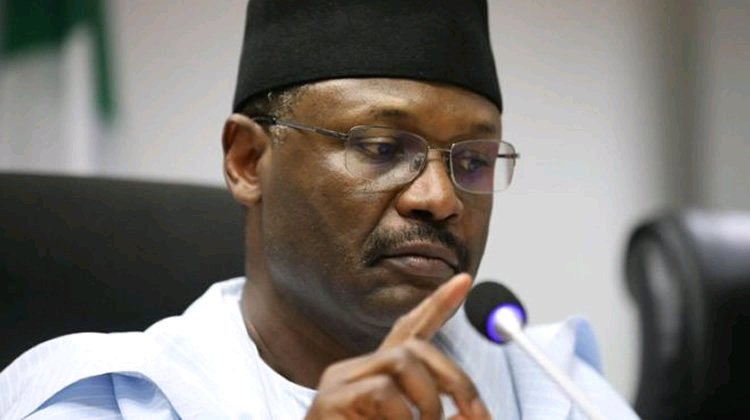774 electoral offenders in 2023 general elections facing prosecution, says INEC boss
By Mercy Peter
INEC Chairman, Mahmood Yakubu disclosed this during the commission’s first regular quarterly consultative meeting with media stakeholders in Abuja.
Yakubu said the prosecution is in collaboration with the Nigerian Bar Association (NBA) in Magistrate and State High Courts, where they compete for attention with numerous other cases.
He said: “Through our collaboration with the Nigerian Bar Association (NBA) cases involving 774 alleged offenders from the 2023 General Election are being prosecuted.
“So far, successful prosecutions have been recorded in Kebbi and Kogi States while our collaboration with the Economic and Financial Crimes Commission (EFCC) on vote-buying has yielded similar results in Lagos, Kwara and Gombe States. Yet, many cases are still pending.”
INEC boss argued that a separate court will help speed up the trials.
He therefore reiterated the Commission’s call for the establishment of a separate call to handle election offences matters.
According to him, “We will strive harder to ensure the continuous improvement of our elections. However, being a multi-stakeholder responsibility, we appeal for the continuous support of all and sundry, especially in critical areas of reform.
“One of these areas of reform is the prosecution of electoral offenders. Judicial and legislative action in the last few days underscore our effort to deal with offences involving officials of the Commission assigned to carry out designated responsibilities. However, it also highlights the challenges we face in dealing with electoral offences.”
He further stressed that, “the recent successful prosecution of a Returning Officer in Akwa Ibom State is a case in point. The Commission has been diligently pursuing the case which arose from the 2019 General Election. In this particular case, it took nearly six years to achieve the successful prosecution at the trial court.”
He explained that “a major obstacle to the speedy dispensation of justice in this regard is that electoral offences are not time-bound as is the case with post-election offences through the tribunals.
“Furthermore, they are solely prosecuted by the Magistrate and State High Courts in the jurisdiction where the alleged offences are committed. “No priority attention is given to such cases as the courts deal with a variety of other cases. Consequently, electoral offences are carried over from one General Election to another which may sometimes affect the diligent prosecution of the cases.
“ It is therefore imperative to renew our call for the creation of the Electoral Offences Tribunal that has a specific jurisdiction and limited timeframe for the speedy dispensation of cases.
“I urge the media to join in this patriotic advocacy for the good of our electoral democracy.”





